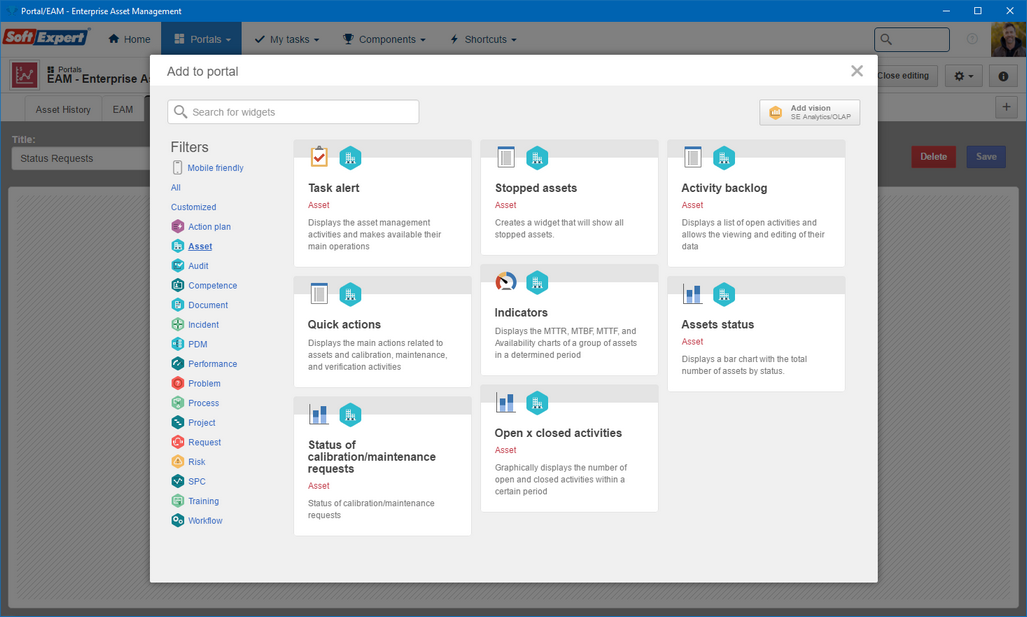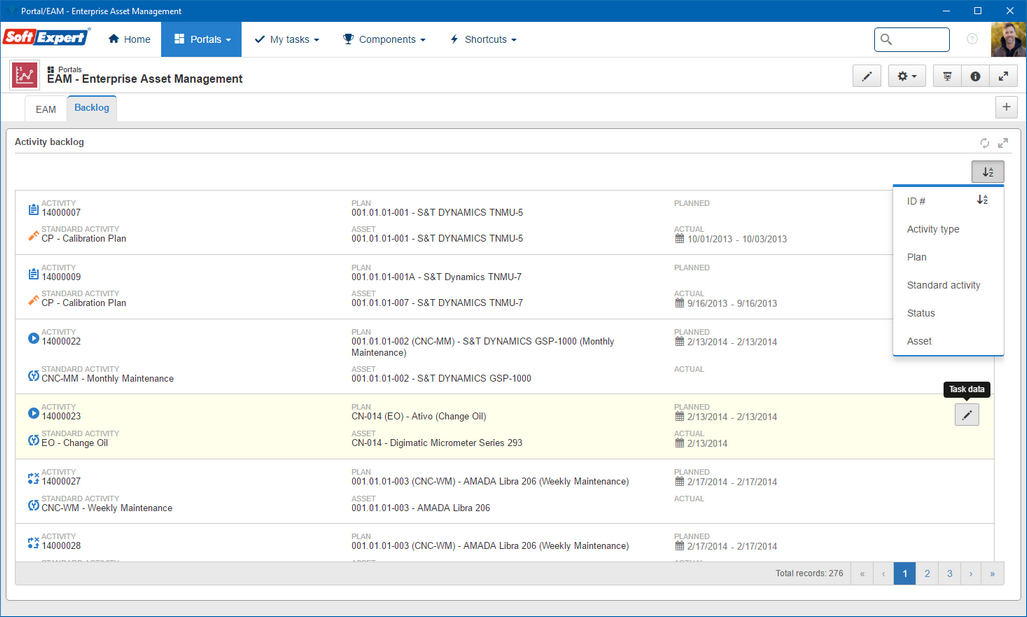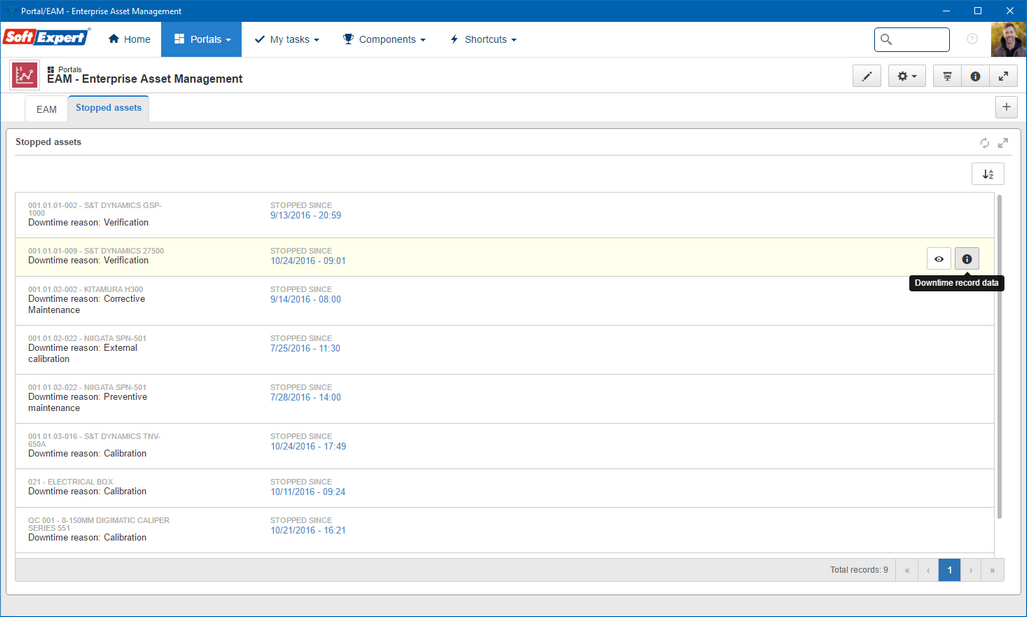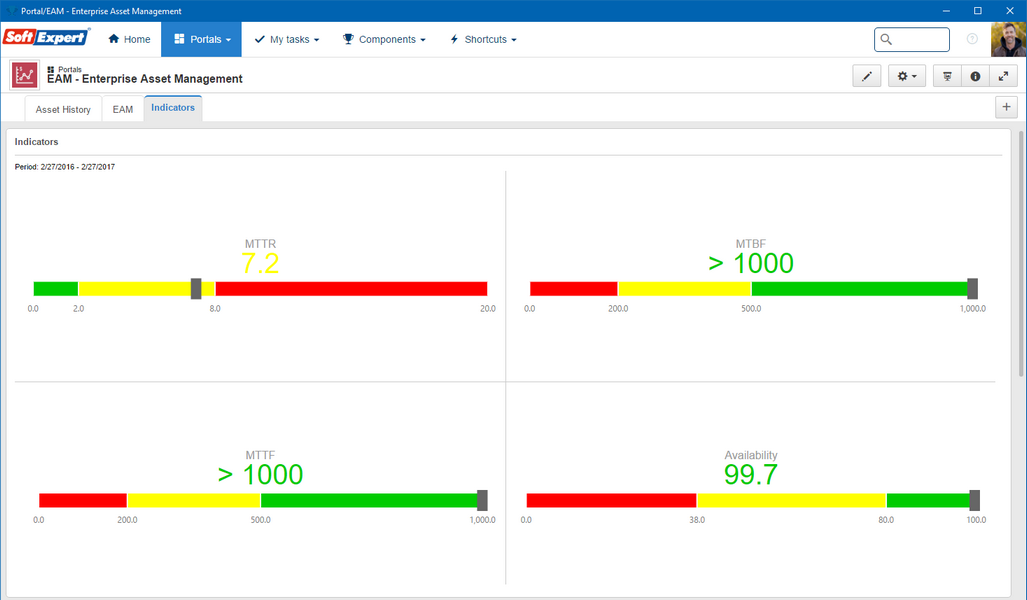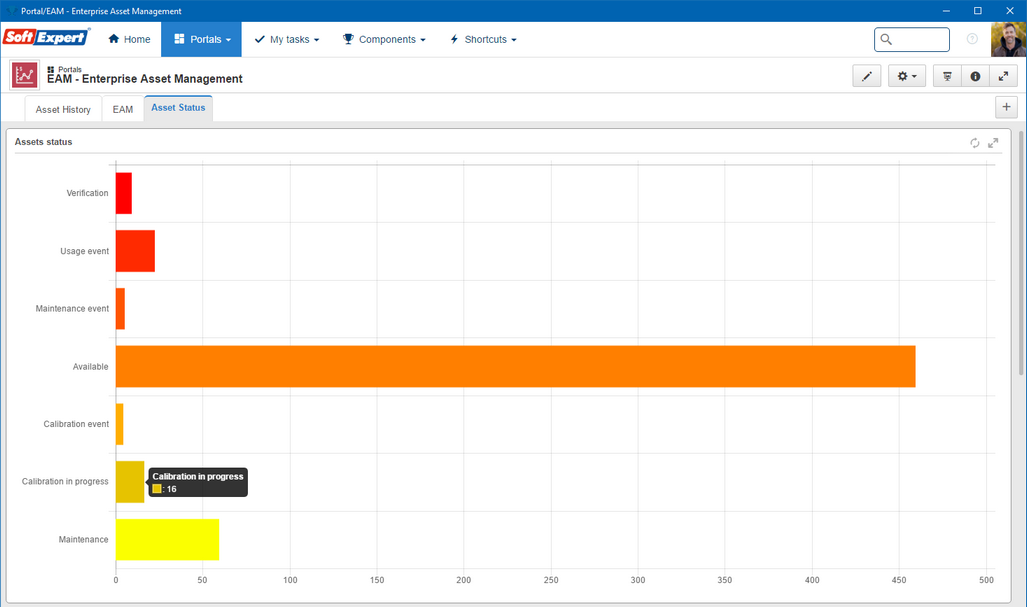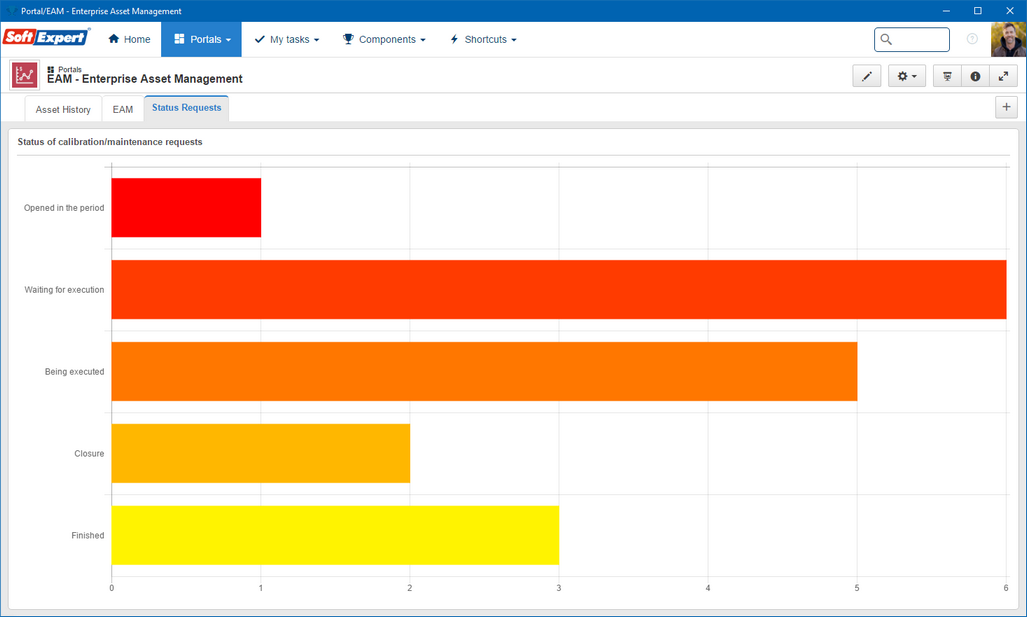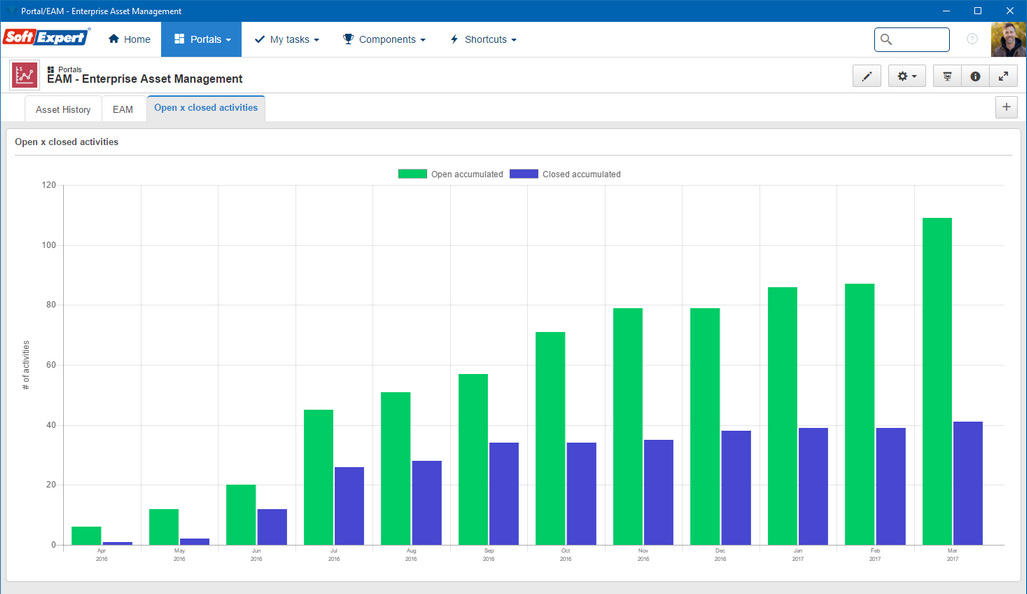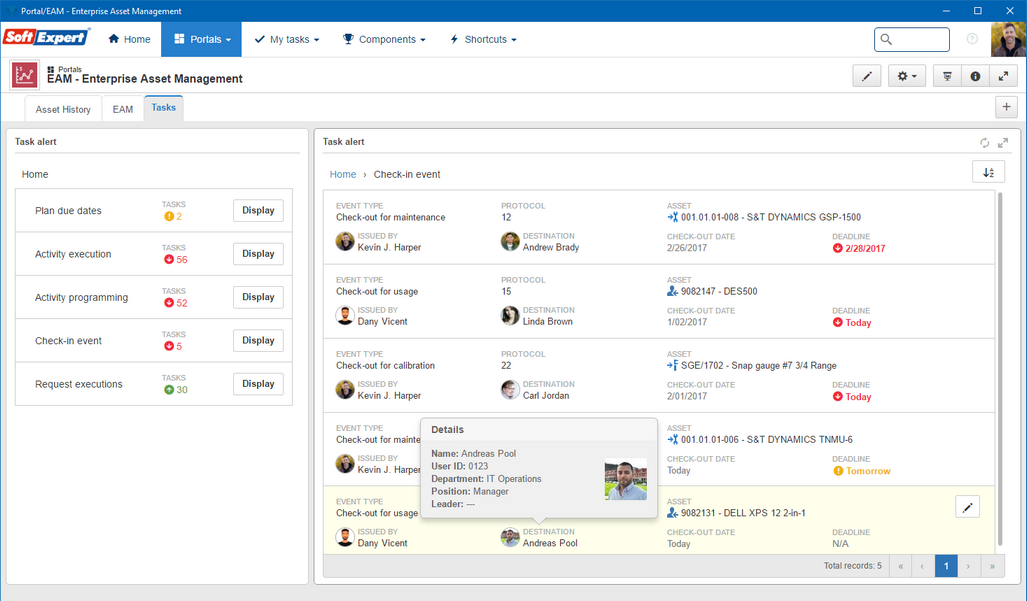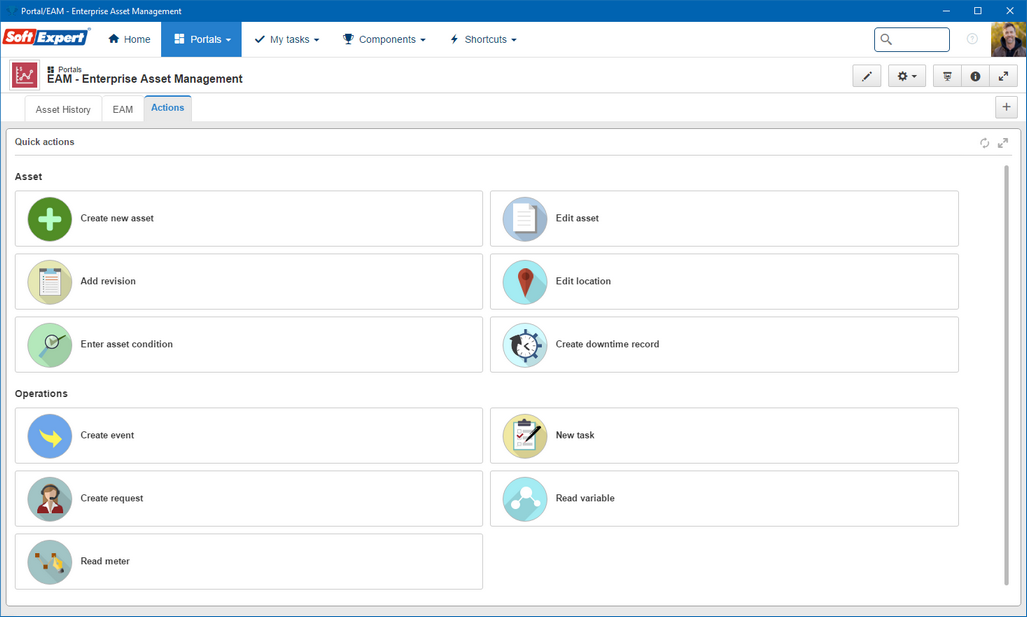
Portal elements
Aiming at a better control over the assets and their activities, several portal elements were created.
Each one of them is listed below:
▪Activity backlog: will list all the open activities in the system (maintenances, verifications, and calibrations). If the user is part of the team responsible for the step the activity is in, he/she may execute the activity directly through the portal.
▪Stopped assets: will list all the assets whose downtime records are open. If the user is part of the team responsible for the record, he/she may finish the downtime directly through the portal.
▪Asset indicators: The system will display the MTBF, MTTF, MTTR, and Availability indicators according to the period and the asset type defined in the configuration.
▪Asset status: will generate a chart with all the statuses related to the asset (In calibration, maintenance, verification, available, or use, maintenance, or calibration event). When clicking the chart option, the user will have access to the listing with the related assets.
▪Status of calibration and maintenance requests: will generate a chart with the status of calibration and maintenance requests, according to the configured period. When clicking the chart option, the user will have access to the listing with the related records.
▪Open x Closed activities: will generate a chart with the quantity of open and closed activities, grouped according to the configured period, which may even be cumulative. When clicking the chart option, the user will have access to the related listing and, if the user is part of the team responsible for the step the activity is in, he/she may execute the activity directly through the portal.
▪Task alerts: will generate a list with the type and quantity of pending tasks for the logged user for the verification, calibration, and maintenance tasks. The system will list the plan due date, check-in event, activity programming and execution, as well as request tasks. When clicking the desired option, the user will have access to the related listing, with the possibility of executing the activity directly through the portal.
▪Quick actions: will allow the user to have shortcuts to access the system menus. Through the portal, users may create, edit, or revise assets, edit a location, add a new condition, create a downtime record, create events, open new calibration, maintenance, and verification activities, or open new requests.
